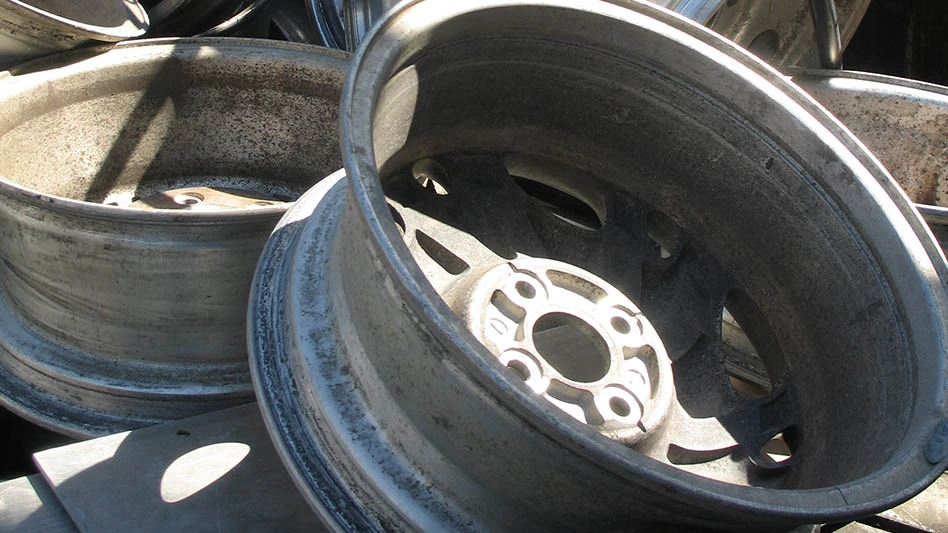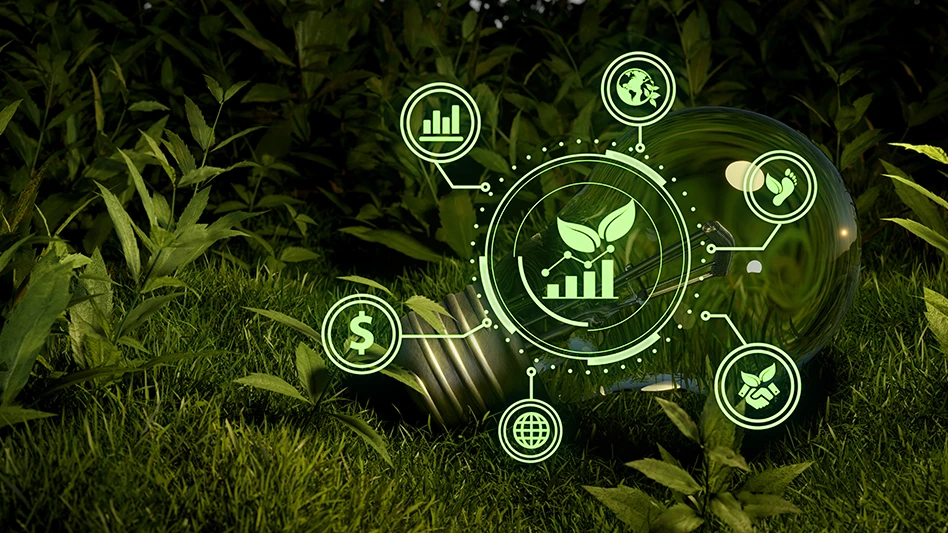
Laura Hennemann, vice president of marketing and communications for Houston-based Strategic Materials Inc., hears a variety of myths about glass recycling every day. She lists them off: Broken glass and mixed glass can’t be recycled. Glass must be washed and cleaned. Glass contaminates other recyclables. Glass can’t be recycled due to China’s National Sword policy. Glass has no end market.
Then she debunks them.
“We accept broken glass. We actually prefer it because you can get more into your container to bring to us,” Hennemann says.
“We use optical sorters to separate glass by color, so when it comes to us it’s not a problem if it’s mixed,” she continues. “Labels and organics on glass don’t present a problem. That’s part of processing to get rid of those items.”
With 50 locations across North America, Strategic Materials recycles 3 million tons of glass per year. The glass recycler accepts glass from material recovery facilities (MRFs) across the country and works with cities to help design cleanup systems to maximize the value of glass.
Hennemann loops back around to a claim that MRFs and cities can’t recycle glass because of China's import restrictions. She gets down to the truth of the matter. MRFs are cutting glass from curbside recycling programs to cut processing costs or because they don’t have the proper equipment to clean the glass.
According to a 2018 study by the Glass Recycling Coalition (GRC), more than 90 percent of residents and consumers expect to be able to recycle glass and more than 50 percent of public sector respondents are actively trying to improve their glass recycling systems.
One example of a MRF taking a chance on glass recycling is Austin-based Balcones Resources, which owns Balcones Recycling. In 2012, Balcones built a new MRF in Austin with a 30 ton per hour processing capability.
“Our customers in Austin wanted to recycle glass when we built our MRF,” Balcones Resources founder Kerry Getter says. “Other people are running away from it now and honestly we view that as a competitive advantage. We’ve embraced it and spent the money on processing systems.”
Before deciding to recycle any new material, Getter determines a few things: viability of the material, end markets, economics, supply and processing costs. Getter says Balcones provides recycling for 60 percent of households in the city of Austin and glass constitutes nearly 30 percent of the company's inbound single-stream material each month.
“There’s a lot of chatter about glass and other items in the stream, particularly since markets have deteriorated over the past year,” Getter says. “We did quite a bit of research related to glass clean up systems before we got involved in this business. Glass recycling was something we hadn’t done before and that gave us a great deal of concern because we had no experience with it. Our roots are in the paper business.”
Contamination was the upmost concern, so Balcones invested in equipment that separates glass from single stream immediately following presort stations, Getter says.
At the 100,000-square-foot facility, Balcones’ glass recycling system includes two glass breakers, a conveyor, shaker screen and aspirator. The conveyor carries the co-mingled recyclables to a shaker screen. A vacuum-like aspirator sucks up light items, such as wine bottle corks and wrappers, and the heavy pieces of glass continue to a stock pile outside the building. The glass then goes to Strategic Materials.
“In our view, you have to be dedicated to the notion of glass recycling,” Getter says. “This is something municipalities [in Austin] demand. They have an aggressive zero waste policy in place they’re trying to meet with several steps before they meet zero waste in 2040, so this is our part of the equation.”
Since recycling glass, Getter says they’ve never had an issue with cross contamination or a claim from a mill.
“I think that’s important to understand,” he says. “That was our biggest concern when we got into this business. It hasn’t been an issue for us because we take it out aggressively on the front end.”
He adds, “One of the nice things about recycling glass in our MRF is it’s one item we don’t touch. Once you spend the money on the right equipment, you’re in good shape.”
In 2017, Northeast Recycling Council (NERC) conducted a survey on glass recycling in MRFs. Of 46 MRFs in 11 states, 30 percent say they don’t do any additional cleaning on glass recyclables and more than 30 percent have not made glass recycling upgrades in the past 3 years.
NERC assistant director Mary Ann Remolador says MRFs with low non-glass residual (NGR) percentages and zero fines report using a mixture of glass recycling methods, from source separation at the facility to dual stream collection, pickers and upgraded cleaning systems.
Demand for recycled glass exceeds supply, Hennemann says, but glass manufacturers and processors are closing down.
In 2017, the Northeastern U.S. consisted of 6 glass manufacturers and 10 glass processing facilities. In 2018, the last glass container manufacturer and MRF glass processors closed, Remolador says.
Across the country, MRFs and municipalities are withdrawing glass from the list of acceptable recyclable materials. The city of Houston sent mail inserts and social media alerts to notify residents glass would no longer be accepted in their bin, Houston recycling manager Sarah Mason recalls.
Mason says Houston dropped glass recycling from its curbside program because of changes within the recycling industry and to cut costs of processing lower value glass from single stream collection.
While trying to figure out how to implement glass recycling back into the program, Houston partnered with Strategic Materials to offer additional drop off bins for glass recycling at city parks, churches and recycling centers, Mason says.
Houston found an answer to its glass recycling problem when FCC Environmental Services, Northampton, U.K., announced the development of a new MRF in Texas, which will have the equipment to clean and process glass. Mason hopes to reintroduce glass recycling to the curbside program in 2019.
"Glass recycling is so important. Its been around for a long time and something there is always going to be a need for," Hennemann says.
Latest from Recycling Today
- Steer World offers PEX plastic recycling machine
- New recycling grant program launches in Massachusetts
- Tire Recycling Foundation names executive director
- Dock 7 named 2025 Exporter of the Year at New Jersey International Trade Awards
- Waste Connections reports ‘better than expected’ Q1 results
- Commentary: How EPR is transforming the packaging industry
- Acerinox names new North American Stainless CEO
- Greenwave closes 2024 books with red ink





